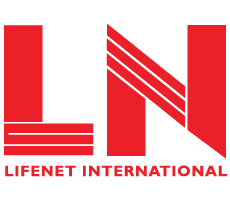WHERE WE WORK
THE SETTING
Vulnerable communities in sub-Saharan Africa face some of the most dire healthcare realities in the world. The region leads the world in rates of child death, HIV infections, and Malaria (WHO). Two-thirds of all maternal deaths in the world occur in sub-Saharan Africa (WHO). The region is also the most dangerous place for a new baby to enter the world—8 of the 10 countries with the highest newborn mortality rates are in sub-Saharan Africa (UNICEF).
THE SETTING
THE LIFENET WAY IMPROVES MATERNAL AND INFANT CARE
According to UNICEF, 80% of newborn deaths are preventable. Similarly, the World Bank estimates that 74% of maternal deaths are preventable if health workers have access to the knowledge and tools they need. Four of the top clinic-based delivery complications in resource-limited settings are infection, sepsis, hemorrhage and asphyxia. These morbidities are preventable and/or readily treatable through evidence-based practices (EBPs) such as hand washing and equipment sterilization, proper estimation of blood loss, placental assessment and infant CPR.
Despite the fact that the supplies and equipment needed to adhere to these key EBPs are inexpensive and generally available, utilization of these EBPs at health facilities in low-resource settings across sub-Saharan Africa is generally limited. This is largely due to a lack of knowledge and skills among healthcare providers. Although training programs on EBPs exist, there is little driving their long-term adoption and adherence in clinical settings.
LifeNet’s innovative interventions directly address these challenges and improve maternal and infant care at these health facilities with cost-effective maternal and infant health training, which also includes a corresponding supply of related equipment. By equipping behavior change and ensuring adherence to EBPs, LifeNet interventions have a significant impact on the leading causes of maternal and infant morbidity and mortality. In 2023 alone, LifeNet partner health facilities saved the lives of 5,045 mothers and newborns at birth, by implementing proper protocols for postpartum hemorrhage and birth asphyxia.
WE ARE TRANSFORMING AFRICAN HEALTH FACILITIES TO PROVIDE QUALITY, SUSTAINABLE HEALTHCARE. BUT WE NEED YOUR SUPPORT.
CONNECT WITH US
IN THE US
LifeNet International
PO Box 21457
2300 18th St NW
Washington, DC 20009
+1 (202) 480-9002
IN BURUNDI
LifeNet International
26 Avenue Ngendandumwe
Bujumbura, Burundi
IN UGANDA
Lifenet International Uganda
Princes Anne Drive, Plot 56 Bugolobi Kampala Uganda
IN DRC
IN MALAWI
LifeNet International
Off Presidential Highway,
Plot Number 116, Area 14
Lilongwe, Malawi
IN KENYA
Lifenet International Kenya
Juimia Place
Lenana Road, Nairobi Kenya
IN GHANA
LifeNet International
30 Spiess Loop, McCarthy Hill
Accra, Ghana
EMAIL US: contact@lninternational.org
NEWSLETTER SIGNUP:
Subscribe for updates and latest developments.
INSTAGRAM FEED, CLICK HERE TO FOLLOW US ON INSTAGRAM
SOCIAL INNOVATION IN HEALTH INITIATIVE
We were chosen as one of 25 high impact healthcare delivery solutions for the
2015 Social Innovation in Health Initiative, in partnership with the World Health Organization.
